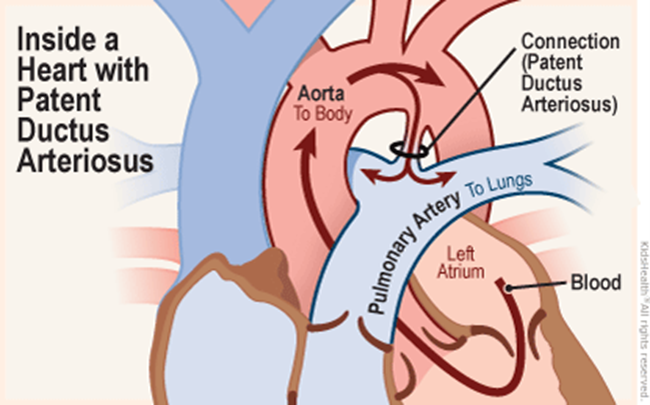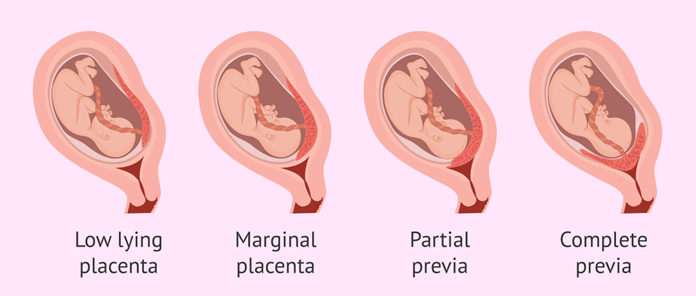The practical nurse (PN) is caring for a newborn whose mother has poorly controlled type 1 diabetes mellitus and observes the newborn is grunting with mild sternal retractions. The PN should recognize the newborn is exhibiting signs of which condition?
Hypothyroidism.
Patent ductus arteriosus.
Hyperinsulinemia.
Ventral septal defect.
The Correct Answer is B
The practical nurse (PN) should recognize that a newborn whose mother has poorly controlled type 1 diabetes mellitus and is exhibiting grunting with mild sternal retractions is exhibiting signs of patent ductus arteriosus. Patent ductus arteriosus is a condition in which the ductus arteriosus, a blood vessel that connects the pulmonary artery to the aorta, fails to close after birth. This can result in abnormal blood flow between the aorta and pulmonary artery, leading to respiratory distress.
Hypothyroidism (Option A) and hyperinsulinemia (Option C) are conditions that can occur in newborns, but they do not typically present with grunting and sternal retractions.
Ventral septal defect (Option D) is a congenital heart defect that can cause respiratory distress, but it is not specifically associated with maternal diabetes.

Nursing Test Bank
Naxlex Comprehensive Predictor Exams
Related Questions
Correct Answer is A
Explanation
The practical nurse (PN) should ask the client if he is planning to obey the voices, as this will help determine the client's risk for harming himself or others. The PN should also ask about the onset and duration of the symptoms and any factors that may have triggered them, such as drug use or recent stressors. Additionally, the PN should assess the client's perception of the voices, as some individuals may recognize them as a symptom of a mental illness, while others may believe them to be real. It is important for the PN to remain non-judgmental and supportive during the assessment, while prioritizing the client's safety.
Correct Answer is B
Explanation
Placenta previa is a condition in which the placenta partially or completely covers the cervix, which can lead to vaginal bleeding during pregnancy. In severe cases, this bleeding can be life-threatening and can lead to hemorrhage. Therefore, the PN should closely monitor the client for any signs of bleeding or hemorrhage, such as excessive vaginal bleeding, hypotension, tachycardia, or signs of shock. The PN should also ensure that the client receives appropriate medical interventions and that emergency measures are in place in case of sudden bleeding or hemorrhage.

Whether you are a student looking to ace your exams or a practicing nurse seeking to enhance your expertise , our nursing education contents will empower you with the confidence and competence to make a difference in the lives of patients and become a respected leader in the healthcare field.
Visit Naxlex, invest in your future and unlock endless possibilities with our unparalleled nursing education contents today
Report Wrong Answer on the Current Question
Do you disagree with the answer? If yes, what is your expected answer? Explain.
Kindly be descriptive with the issue you are facing.
